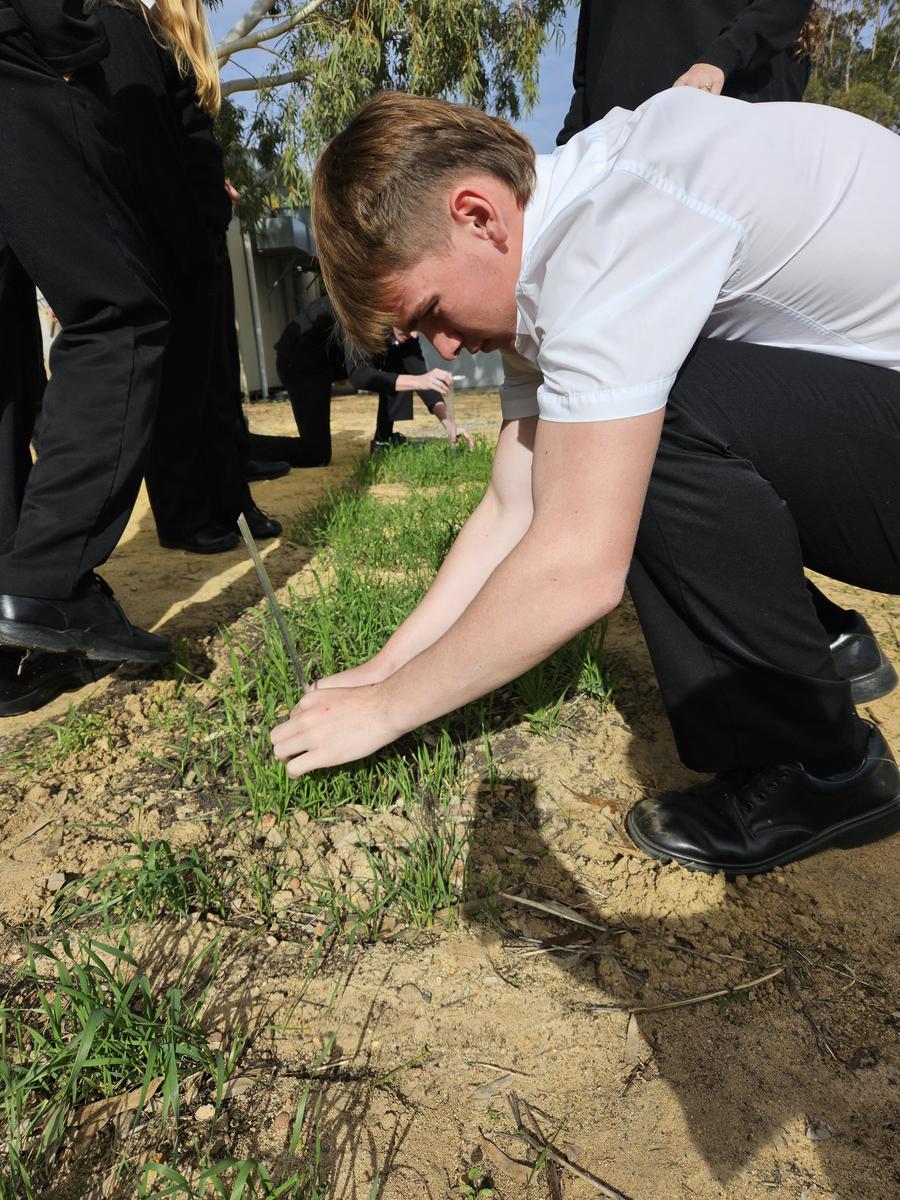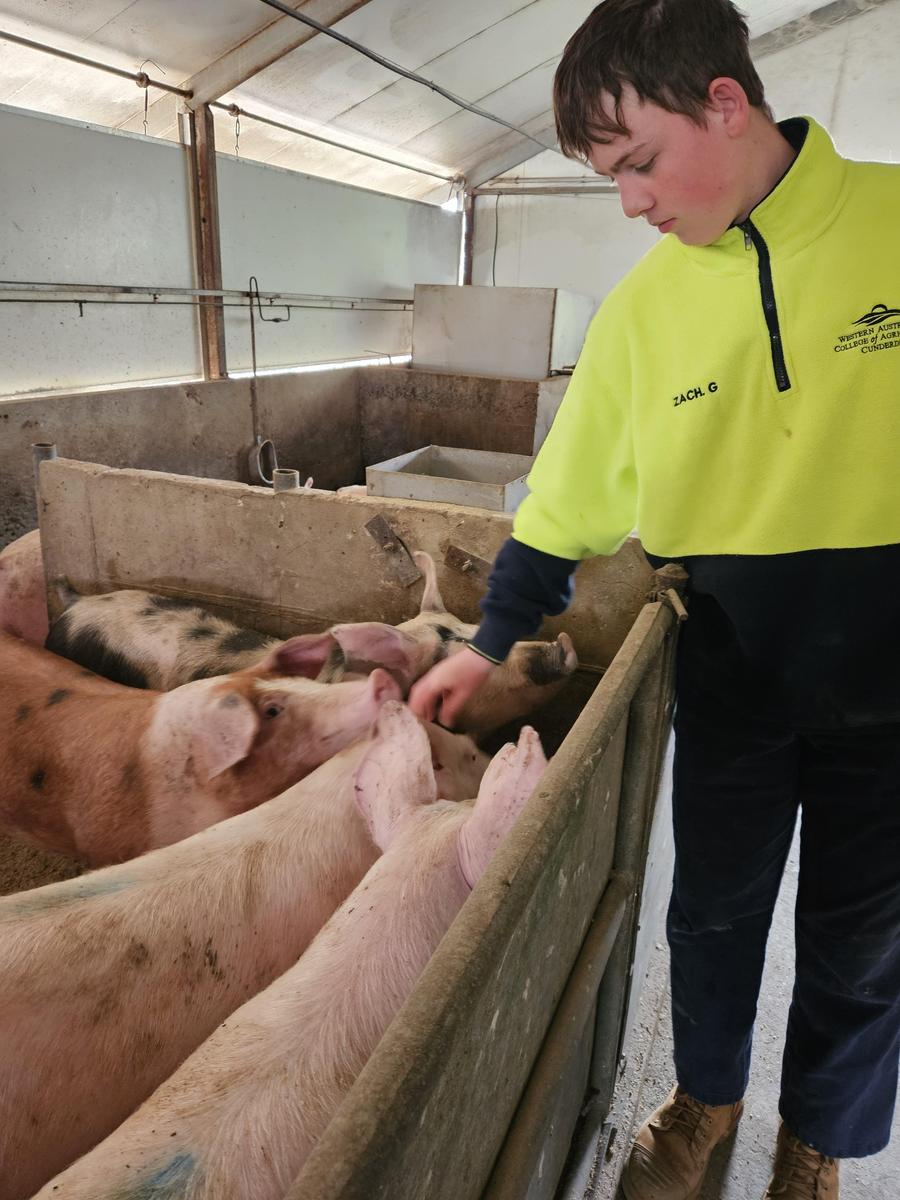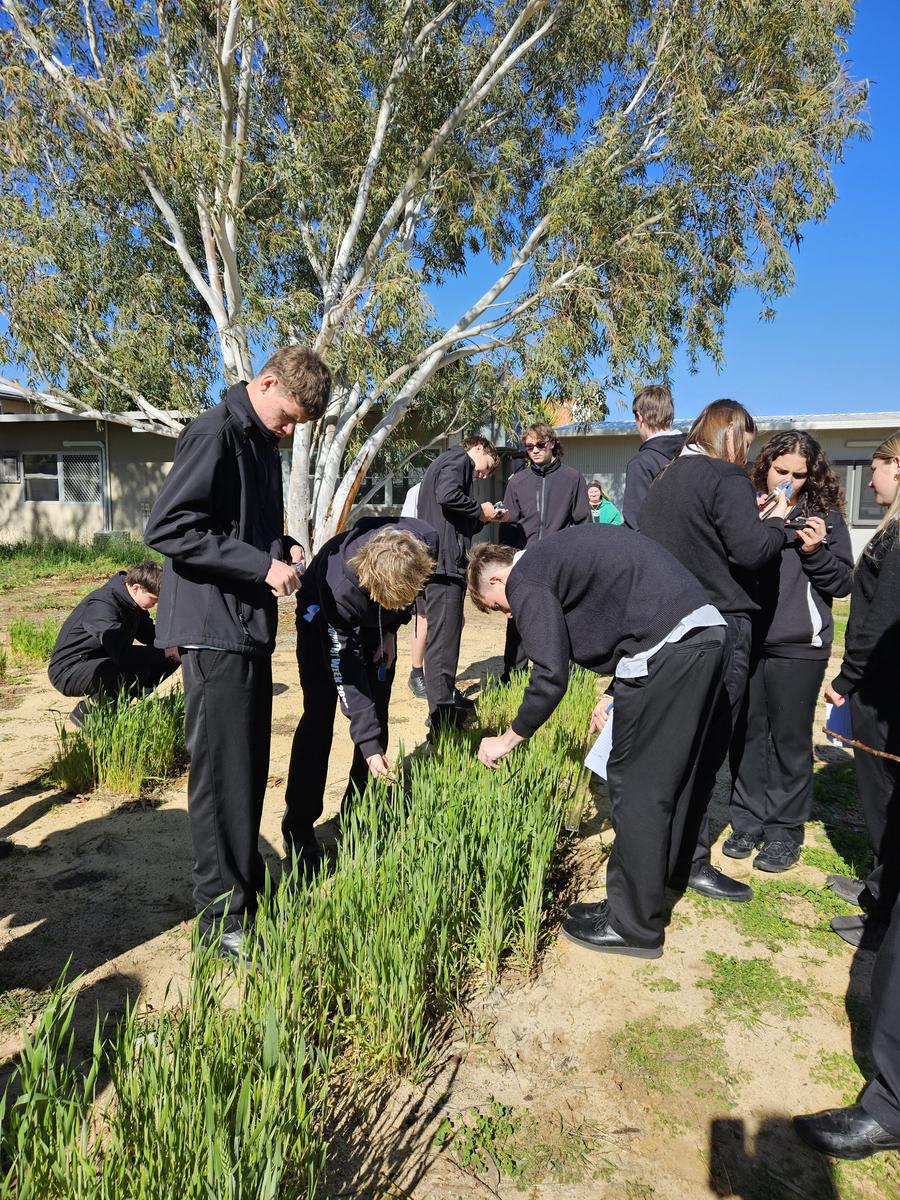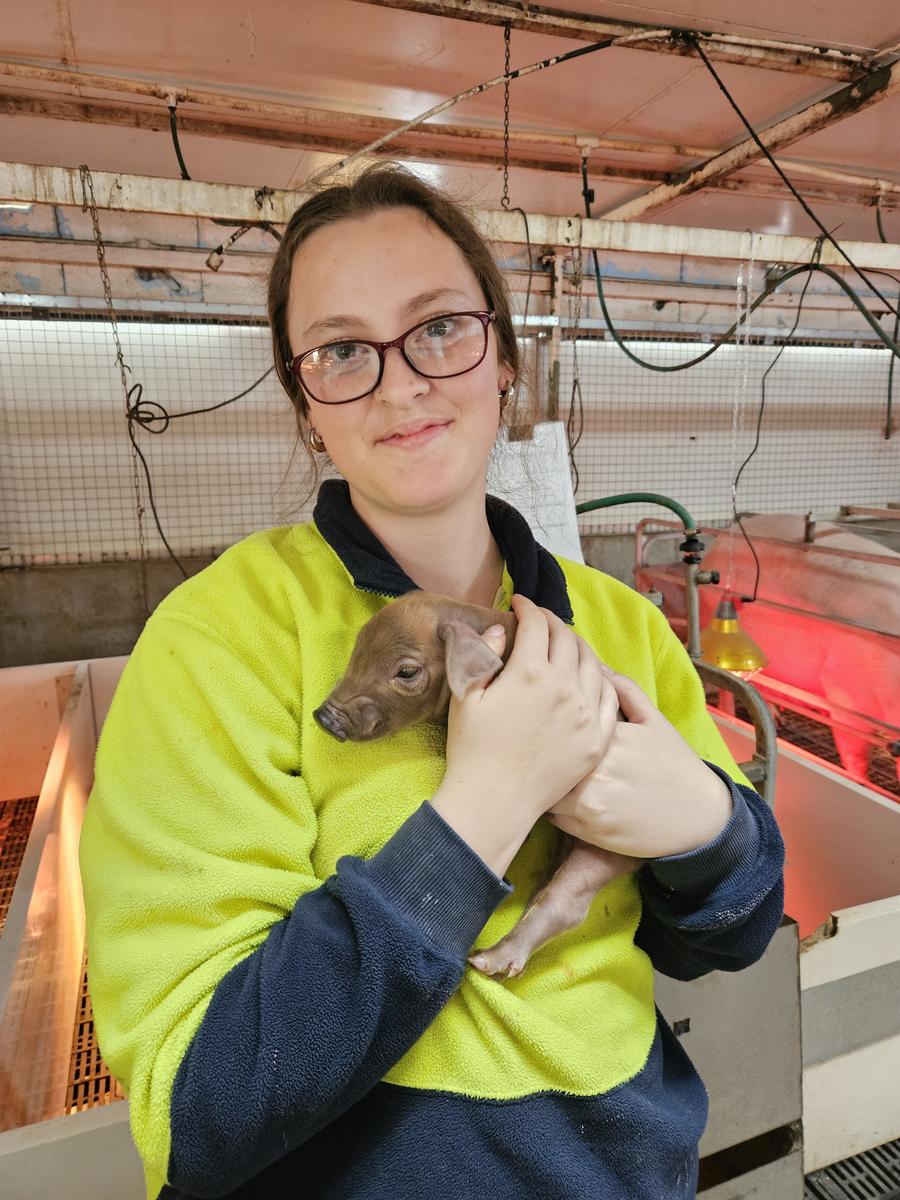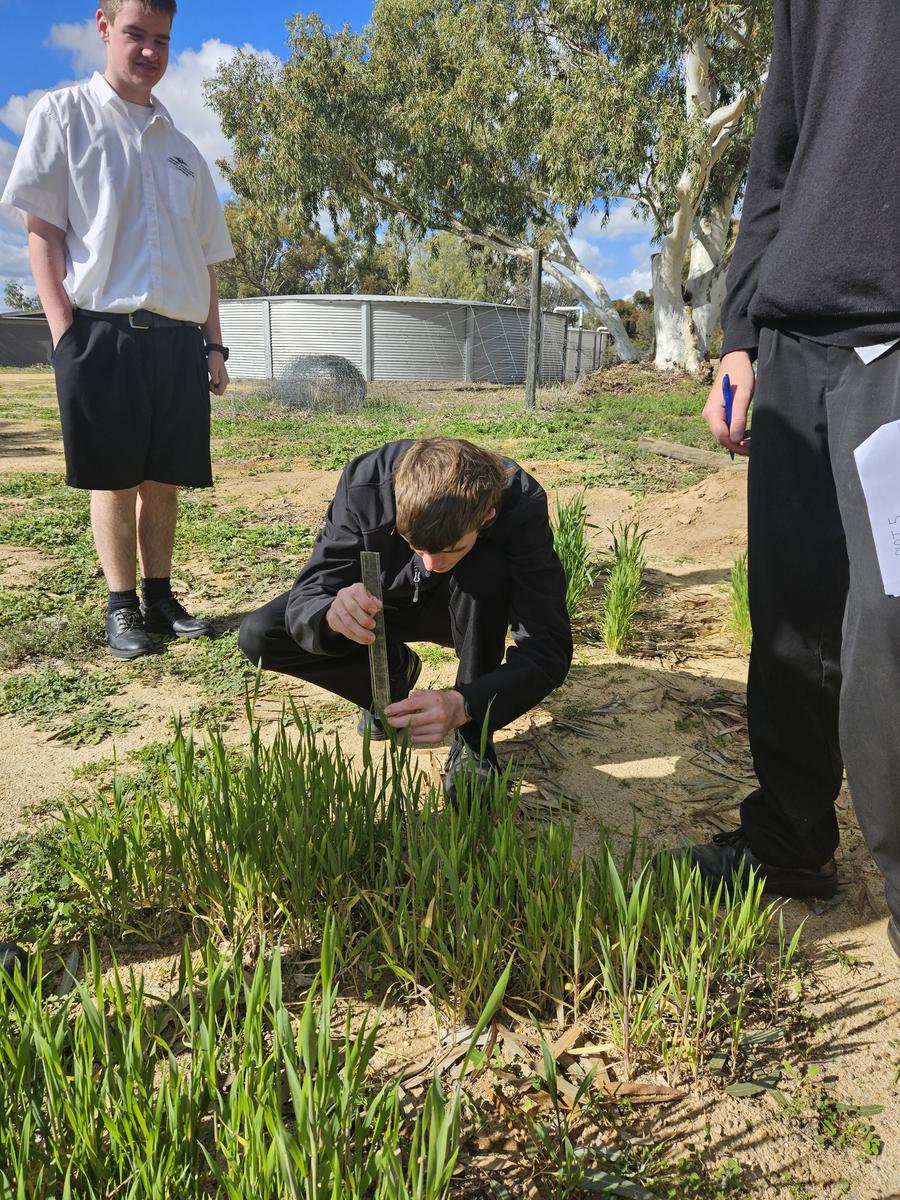Class

Class updates - Annette Wells
Term 3 is in full swing, and students are busy working towards a variety of assessments including: resumes and cover letters, persuasive speeches, understanding graphs and statistical investigations as well as the exciting and innovative tasks in Animal and Plant described below.
We have a few important events coming up too. Year 11 ATAR attend their Camp in Week 4; students will be visiting Universities and local producers to further their knowledge for the Agribusiness and Agriscience and Technology courses. Year 12 ATAR are visiting the Living Farm in York during Week 5, and both ATAR classes will also attend Elevate study skills sessions. Week 5 concludes with the Meckering Cross Country.
Year 11 and 12 Plant Production and Year 12 Animal Production – Kate Strong
It’s innovation central in the Year 11 Plant Production classes! Students are currently creating innovative ways to increase the future economic, environmental and social resilience of WA farmers in a hotter, drier and more variable climate.
These innovations form part of their assessment task for our sustainability unit, which is a collaborative task set by the Grower Group Alliance and South-West WA Drought Resilience Adoption and Innovation Hub. We have some great ideas coming along already, including inoculating seeds with clay at planting for greater water holding capacity, some very intricate irrigation systems, spot spraying drones, organic fertiliser made from food waste and worm farms, frost fans and more!
We’ve also been testing some of the factors that influence plant growth as part of our Fertiliser Investigation, including Brix meters (which measure the dissolved sugar levels in plant sap), soil pH tests, and shortly, we will include water tests. Our plant Brix levels varied from 6-11, while our pH tests showed our soil to be neutral – ideal for most plants!
In the Year 12 Plant Production classes, we have just completed our Seed Depth Investigation, which showed some interesting results. For the investigation, the students chose three seeding depths for their crop of choice and measured the height of plants each week as well as the germination percentage. The groups that planted Canola this year had no germination or growth across the seven weeks, likely due to the use of older seeds that had been stored in the classroom for too long. Those with Lupins and Wheat found that 3cm was the best depth for germination and growth, and those with Barley found that seeds planted at 2.5cm had the best germination, while those at 1.5cm had the best growth across the seven-week trial.
We are now looking at Plant Health and the impact that different pests, weeds and diseases can have on cropping systems. This will lead into a research assessment task where students are creating an Integrated Pest Management plan for a pest, weed or disease of their choice.
For the Year 12 Animal Production students, we are currently working through our Breeding and Improvement task, which covers bull selection and the importance of using Estimated Breeding Values (EBVs) for informed decision making. The students have been working through the GinGin Bull Sale Catalogue from this year and will have their chosen bulls on display at Open Day!
At the end of last term, we finished our Pig Investigation as well as our Animal Nutrition and Digestion content. In our Investigation, we found that male pigs post-weaning grew quicker than the female pigs of the same age and in the same conditions across our six-week trial.

